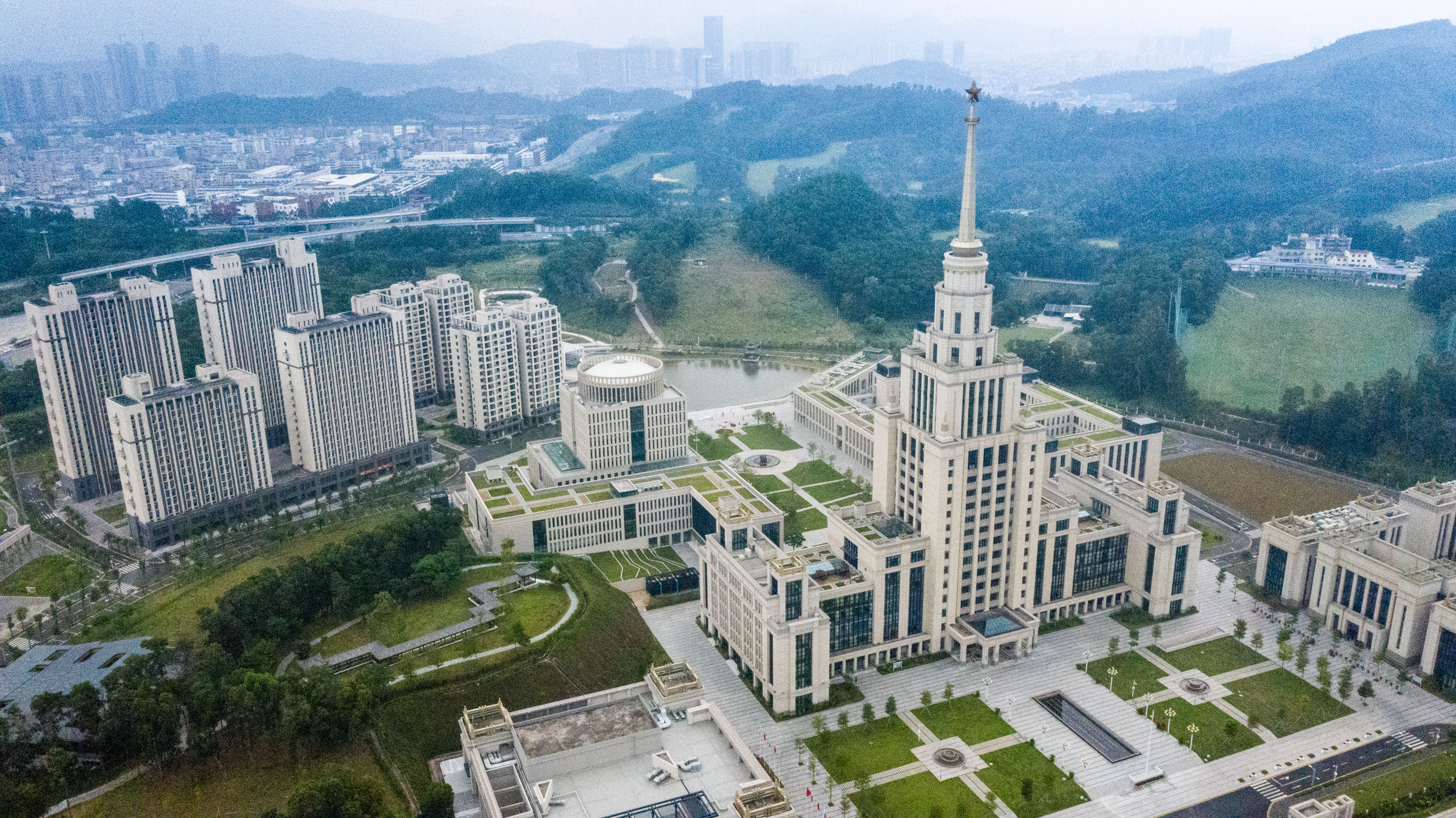Composing New Chapter of China-Russia Sci-tech Cooperation

Established in 2016, Shenzhen MSU-BIT University is the first Sino-Russian cooperative university. (PHOTO: XINHUA)
Edited by TANG Zhexiao
China and Russia are each other's biggest neighbor and comprehensive strategic partners of coordination. Under this all-round and multi-tiered cooperation framework, the two sides have had a long and fruitful history in science and technology cooperation spanning several decades.
Cooperation in science and education, such as academic exchange and joint scientific research programs have been promoted in recent years.
The journal Nature said China has now become one of Russia's top academic partners in recent years, publishing around 17 percent of Russia's international co-authored papers in 2021, nearly double compared with 2012.
According to Russia's Ministry of Education and Science, more than 30 thousand Chinese citizens are studying at Russian universities as of 2022.
Meanwhile, Irina Panchenko, associate professor of the Siberian State Industrial University, has completed an internship at China's Wenzhou University, before heading the laboratory of electron microscopy and image processing in Russia.
Russian scientists, together with Chinese colleagues, have successfully conducted research on the calculation of atomic fractions of components forming high-entropy alloys of metal systems, said Panchenko.
On the space front, China National Space Administration and Russia's space agency Roscosmos inked a deal in November 2022 to strengthen bilateral space cooperation in 2023-2027.
According to Roscosmos, the two sides signed an agreement on cooperation in creating an international scientific lunar station, which will conduct scientific research and service lunar rovers and a hopping robot.
Moreover, a cooperation deal on mutually supplementing Russia's Glonass and China's BeiDou global satellite navigation systems, was reached in 2022.
The reciprocal agreements indicate a growing level of trust and cooperation between Moscow and Beijing, said analyst Alexander Gabuev, senior fellow and chair of the Russia in the Asia-Pacific Program at the Carnegie Moscow Center.
Even though the Biden administration imposed tough sanctions on Beijing and Moscow's hi-tech sector, seeking to sever them from semiconductor, super-computing and AI technologies, the Chinese and Russians are likely to make progress in this field nonetheless, according to Russia's Sputnik news.
"Obviously the West would be very frightened of that because of the power of AI and IT," said Thomas W. Pauken II, a consultant on Asia-Pacific affairs and a geopolitical commentator, adding that, "It's going to be hard for the world to accept that, but obviously, there are advantages for China and Russia to move forward."
Pauken expressed confidence that China-Russia cooperation will result in the development of joint high-tech clusters, as well as innovation in the science and high-tech field.
Practices have proven that there are great potential and broad prospects for China-Russia cooperation in sci-tech innovation.
According to the joint statement of China and Russia released in March, the two sides will deepen mutual cooperation in the field of sci- tech innovation, expand talent exchanges, focus on frontier areas of science and technology and joint research on common issues of global development, and explore new cooperation models in the fields of AI, Internet of Things, 5G, the digital economy and low-carbon economy.
Just as every new year starts with spring, there is reason to expect that China and Russia will open a new chapter of sci-tech cooperation and make greater contributions to the global community.







